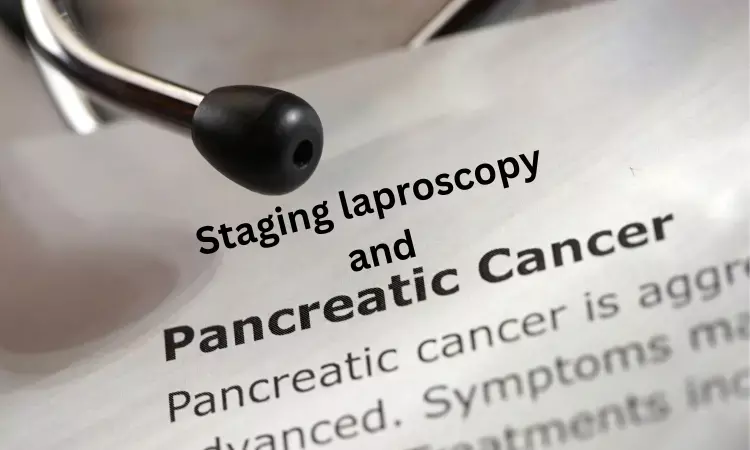- Home
- Medical news & Guidelines
- Anesthesiology
- Cardiology and CTVS
- Critical Care
- Dentistry
- Dermatology
- Diabetes and Endocrinology
- ENT
- Gastroenterology
- Medicine
- Nephrology
- Neurology
- Obstretics-Gynaecology
- Oncology
- Ophthalmology
- Orthopaedics
- Pediatrics-Neonatology
- Psychiatry
- Pulmonology
- Radiology
- Surgery
- Urology
- Laboratory Medicine
- Diet
- Nursing
- Paramedical
- Physiotherapy
- Health news
- Fact Check
- Bone Health Fact Check
- Brain Health Fact Check
- Cancer Related Fact Check
- Child Care Fact Check
- Dental and oral health fact check
- Diabetes and metabolic health fact check
- Diet and Nutrition Fact Check
- Eye and ENT Care Fact Check
- Fitness fact check
- Gut health fact check
- Heart health fact check
- Kidney health fact check
- Medical education fact check
- Men's health fact check
- Respiratory fact check
- Skin and hair care fact check
- Vaccine and Immunization fact check
- Women's health fact check
- AYUSH
- State News
- Andaman and Nicobar Islands
- Andhra Pradesh
- Arunachal Pradesh
- Assam
- Bihar
- Chandigarh
- Chattisgarh
- Dadra and Nagar Haveli
- Daman and Diu
- Delhi
- Goa
- Gujarat
- Haryana
- Himachal Pradesh
- Jammu & Kashmir
- Jharkhand
- Karnataka
- Kerala
- Ladakh
- Lakshadweep
- Madhya Pradesh
- Maharashtra
- Manipur
- Meghalaya
- Mizoram
- Nagaland
- Odisha
- Puducherry
- Punjab
- Rajasthan
- Sikkim
- Tamil Nadu
- Telangana
- Tripura
- Uttar Pradesh
- Uttrakhand
- West Bengal
- Medical Education
- Industry
Staging laproscopy highly effective in diagnosis of pancreatic ductal adenocarcinoma

Pancreatic ductal adenocarcinoma (PDAC) is a castatrophic disease with poor prognosis and rising incidence globally. Late detection and a particularly aggressive biology are the major challenges which determine therapeutic failure. Pancreatic ductal adenocarcinoma is the third leading cause of cancer-related death in the US.
Precise staging and diagnosis prior to resection of pancreatic ductal adenocarcinoma (PDAC) is of atmost importance to avoid unnecessary operative morbidity and oncologic futility in patients with occult intra-abdominal distant metastases.
Researchers in the current study aimed to determine the diagnostic yield of staging laparoscopy (SL) and to identify factors associated with increased risk of positive laparoscopy (PL) in the modern era.
The study published in Journal of American College of Surgeons suggests that SL with peritoneal lavage should be considered for the majority of patients prior to resection, specifically those with high-risk features, and ideally prior to neoadjuvant chemotherapy also the rate of PL patients with PDAC was high in the modern era.
Researchers designed a retrospective review that included patients with radiographically localized PDAC who underwent SL from 2017 to 2021. The yield of SL was defined as the proportion of patients with PL, including gross metastases and/or positive peritoneal cytology. Factors associated with PL were assessed using univariate analysis and multivariable logistic regression.
The key findings of the study are
• A total of 1,004 patients who underwent SL, out of which 180 (18%); 140 had PL due to gross metastases and/or 96 had positive cytology.
• Patients who had neoadjuvant chemotherapy prior to laparoscopy had lower rates of PL (14% vs 22%, p = 0.002).
• When the analysis was restricted to chemo-naive patients who had concurrent peritoneal lavage performed, 95 of 419 patients (23%) had PL.
• In multivariable analysis, PL was associated with younger (<60) age, indeterminate extrapancreatic lesions on preoperative imaging, body/tail tumor location, larger tumor size, and elevated serum CA 19-9 (all p < 0.05).
• Among patients with no indeterminate extrapancreatic lesions on preoperative imaging, the rate of PL ranged from 1.6% in patients with no risk factors to 42% in young patients with large body/tail tumors and elevated serum CA 19-9.
Researchers concluded that “The rate of PL in patients with PDAC remains high in the modern era. SL with peritoneal lavage should be considered for the majority of patients prior to resection, specifically those with high-risk features, and ideally prior to neoadjuvant chemotherapy.”
Reference: Gudmundsdottir, Hallbera MD; Yonkus, Jennifer A MD; Alva-Ruiz, Roberto MD; Kendrick, Michael L MD, FACS; Smoot, Rory L MD; Warner, Susanne G MD, FACS; Starlinger, Patrick MD; Thiels, Cornelius A DO; Nagorney, David M MD, FACS; Cleary, Sean P MD, FACS; Grotz, Travis E MD; Truty, Mark J MD. Yield of Staging Laparoscopy for Pancreatic Cancer in the Modern Era: Analysis of More than 1,000 Consecutive Patients. Journal of the American College of Surgeons 237(1):p 49-57, July 2023. | DOI: 10.1097/XCS.0000000000000704.
MSc. Neuroscience
Niveditha Subramani a MSc. Neuroscience (Faculty of Medicine) graduate from University of Madras, Chennai. Ambitious in Neuro research having worked in motor diseases and neuron apoptosis is interested in more of new upcoming research and their advancement in field of medicine. She has an engrossed skill towards writing and her roles at Medical dialogue include Sr. Content writer. Her news covers new discoveries and updates in field of medicine. She can be reached at editorial@medicaldialogues.in
Dr Kamal Kant Kohli-MBBS, DTCD- a chest specialist with more than 30 years of practice and a flair for writing clinical articles, Dr Kamal Kant Kohli joined Medical Dialogues as a Chief Editor of Medical News. Besides writing articles, as an editor, he proofreads and verifies all the medical content published on Medical Dialogues including those coming from journals, studies,medical conferences,guidelines etc. Email: drkohli@medicaldialogues.in. Contact no. 011-43720751


